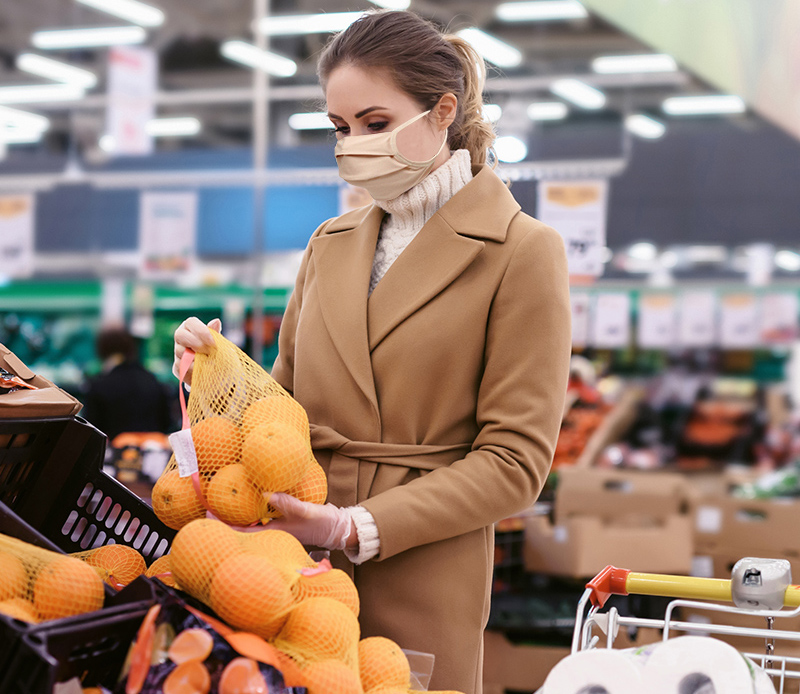Social distancing, good hand hygiene and avoiding touching areas of your face remain the best ways to protect yourself and others against coronavirus. However, face masks can be a useful additional measure for the general public to keep each other protected. The government recently issued a statement advising that people ‘should aim to wear a face covering in enclosed spaces where social distancing is not always possible and when they come into contact with others who they do not normally meet – for example, on public transport or in some shops.’
But when it comes to buying a face mask, the overwhelming choice of options can make it difficult to decipher which is necessary for everyday use.
Different Types of Masks
There are a few different types of mask available to buy, from medical grade masks with valves to reusable cloth masks made by individual sellers. Cotton masks are lightweight and simple and can be made with multiple layers of fabric for additional filtration, or a filter pocket, rather than just one layer. Synthetic masks are made from synthetic materials – often from polyester or spandex with a breathable cotton on the inside – to enhance filtration. Higher-grade medical face masks are commonly made from polypropylene which is a stiffer material on the skin.
Most masks will have elastic straps to attach the mask to your face. To reduce the risk of infection, you need to be able to remove it by using the straps so that you do not have to touch your face. You’ll ideally want to look for masks that are comfortable with a snug but not too tight fit. Some close-fitting and thicker material masks have valves built-in to avoid any dense material from filtering in (usually required for construction workers). However, the air you exhale is not filtered, therefore will not protect others if you have the virus.
Masks Environmental Impact
Another thing to consider when buying face masks is the environment. Discarded single-use face masks could be causing significant harm to the environment. UCL’s Plastic Waste Hub released a document stating that if every person in the UK used one single-use face mask every day for a year, it would create 66,000 tonnes of contaminated plastic waste and ten times more climate change impact than reusable masks. Much evidence also suggests that reusable masks perform most of the tasks of single-use masks without the associated waste to the environment.

Comfortable and environmentally-friendly, Daylong’s face masks are made from soft, skin-friendly tri-flex fabric that have effective antibacterial properties. Made with Silvadur technology, these face masks stay fresh and protected from odours. The technology is able to withstand high temperatures, extending the useful life of every treated mask. A great reusable option, the masks can be washed x 50 times without losing effectiveness. Find out more about it here.

